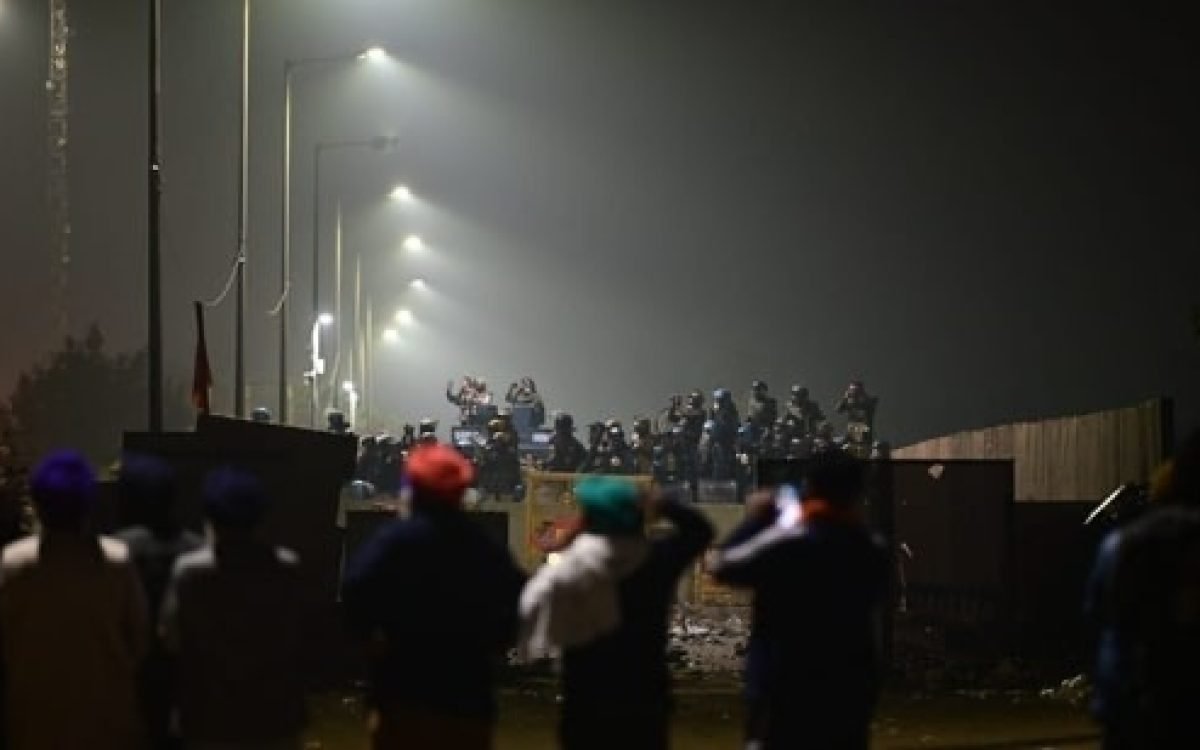In the backdrop of ongoing tensions and negotiations between the Indian government and protesting farmers, the situation at the Delhi borders remains tense yet resilient. As of Thursday, no clashes have been reported between farmers and Haryana security personnel at the Shambhu and Khanauri border points, indicating a cautious calm prevailing in the region.
However, the atmosphere in the national capital remains charged as the Delhi police enforce Section 144, restricting the entry of tractor-trolleys and large gatherings to maintain law and order. The aftermath of Wednesday’s demonstrations led to significant traffic disruptions at the Delhi-Ghaziabad border, highlighting the gravity of the farmers’ agitation and the stringent measures imposed by authorities.
Traffic Advisory for Thursday:
- Interstate buses and trucks bound for Haryana, Punjab, and Himachal Pradesh are rerouted via the Outer Ring Road at Majnu Ka Tilla, proceeding towards the Signature Bridge to Khajuri Chowk via Loni Border, and further onto the Eastern Peripheral Road.
- Trucks originating from Azadpur Mandi and destined for Sanjay Gandhi Transport Nagar are directed to take a diversion from Azadpur Mandi, utilizing the service road towards Outer Ring Road, navigating via Haiderpur Water Plant, Rohini Jail Road Sector-18, Badli Metro Station, and eventually reaching Sanjay Gandhi Transport Nagar.
- Only DTC Buses and cars/four-wheelers are permitted from Mukarba Chowk towards NH-44, with an advised exit at DSIIDC Cut to proceed towards Narela and Safiabad Border.
Key Highlights of the Farmers’ Protest:
- Public intellectuals and artists released a statement in solidarity with the joint initiative by workers and farmers for a sectoral industrial strike and Grameen Bharat Bandh on February 16, emphasizing the importance of support for the farmers and workers.
- Union Agriculture Minister Arjun Munda appealed for cooperation and open communication with protesting farmers to address concerns and prevent inconvenience to the general public, acknowledging the complexity of drafting new laws.
- Senior Congress leader Shashi Tharoor defended the farmers’ democratic right to protest, rejecting comparisons with fortified borders and asserting the legitimacy of their grievances.
- Akhilesh Yadav criticized the government’s handling of the protests, denouncing what he perceived as deception and authoritarian tactics, contrasting the honor bestowed upon late farmer leader Chaudhary Charan Singh with the crackdown on protesters.
- The farmers’ demands, including the implementation of a minimum support price (MSP) for all crops as recommended by the Swaminathan Commission report, underscore their quest for fair prices and accountability from the central government.
As the farmers’ march towards Delhi persists, spearheaded by the Sanyukt Kisan Morcha and Punjab Kisan Mazdoor Sangharsh Committee, the resolve of the protesters reflects a broader struggle for agrarian rights and socio-economic justice. The demands voiced by the farmers echo the aspirations of millions across the nation, emphasizing the imperative for inclusive policy dialogue and equitable reforms in India’s agricultural landscape.









